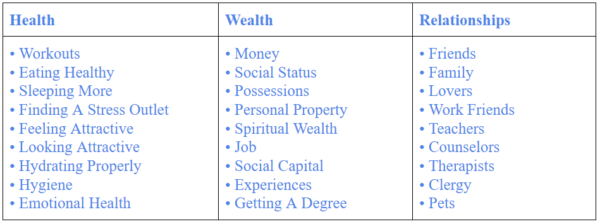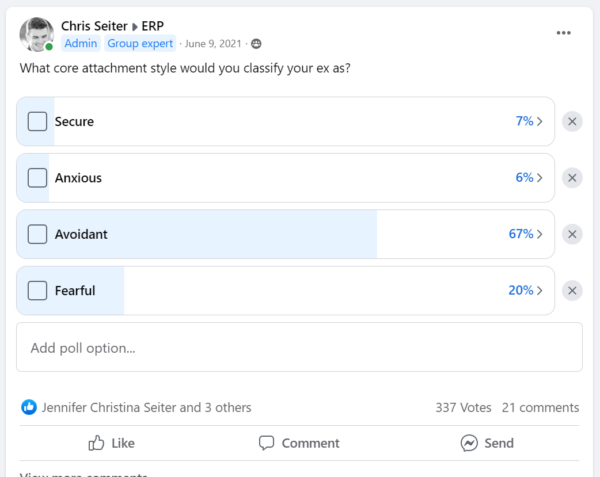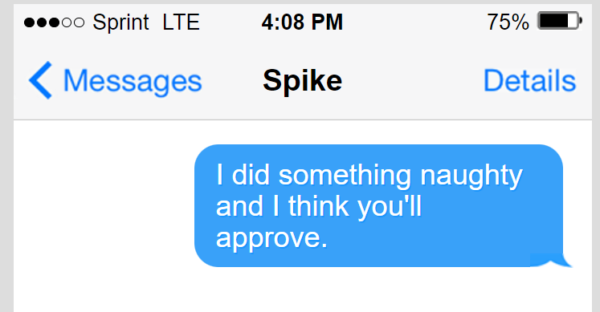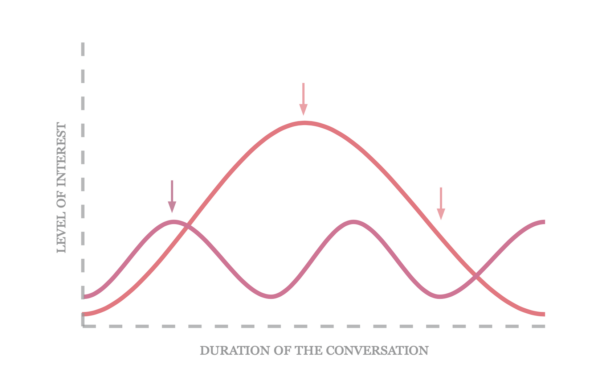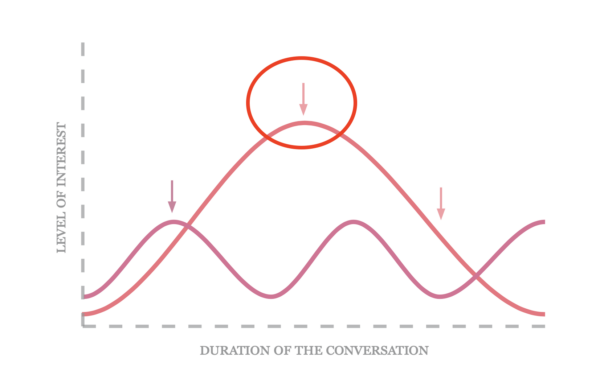I’ve been thinking a lot lately about what tactics make your ex miss you the most.
Typically, when you go to Google and type that search phrase in you’re going to get all kinds of people talking about the “50 tips to make your ex miss you” or the “8000 tips…”
But there’s no way that 8000 tips are the “BEST” way to make an ex miss you. And yes, I have been guilty of falling into the trap of just listing out as many tips as possible to get more views.
But I’m not interested in that. I want the cream of the crop. The ACTUAL best tips. So, after spending the last two hours going through everything I’ve settled on five,
- Seeing You Thrive Without Them
- Big Talk
- Convincing Them You’ve Moved On
- Tapping Into Their Desire For You And Then Leaving Them Hanging
- Becoming A Master Of The Zeigarnik Effect
As always, we start from the top.

What Are Your Chances of Getting Your Ex Boyfriend Back?
Take the quizTip #1: Seeing You Thrive Without Them
This is probably the most common thing that many of the experts in the industry will talk about.
And really, this is what we recommend doing during periods of no contact.
Without a doubt, the no contact rule is one of the most popular strategies, not only in the breakup industry but within this very website.
But we’ve, over the past few years, undergone a mindset shift in how we approach the no contact rule. Whereas I think most of my peers look at the no contact rule as a way to make your ex miss you, and make no mistake about it, the psychological basis is there for it to have a decent chance of making your ex miss you, I actually found that when I talked to real people who’ve implemented it, it’s not necessarily the no contact rule itself that has the most profound effect. It’s what you’re doing during that period of no contact.
And this is really where people who do trinity work tend to be a little more successful during the no contact.
If you’re not familiar, trinity work refers to the concept that I call the holy trinity, which essentially involves looking at your life and dividing it into three distinct categories:
- health-based things
- wealth-based things
- relationship-based things.
Now, there’s an interesting symbiotic nature between health, wealth, and relationships.
We’ll use your breakup as an example.
When you go through a breakup, obviously that negatively impacts the relationships portion of your life, but that negative impact can slowly bleed into the other areas of your life and pollute it.
So whereas you might get extremely depressed because you’ve gone through a breakup, perhaps you just decide to skip a day at the gym. Maybe you start eating poorly and not doing meaningful things with your time apart from your ex because you are stressed, and that’s the only way you know how to cope.
So you put on a few pounds and you grow even more depressed. So now all of a sudden the health-based aspect of your life is getting negatively impacted.
This spirals you into an even greater depression and as a result, you decide you’re just going to stop going into work for a few days. You need a few cool-off days, which causes your boss to call you up and potentially fire you.
Now this is obviously an extreme example, but you can see how the dominoes can fall negatively in one way, but the opposite is also true.
If you want to rebuild your life, you can actually focus on the areas that are not your relationships, your health and your wealth, and start leveling those areas up. And what you’ll find is that this symbiotic nature can go the other way in a very positive way.
So really it’s this idea of buying into outgrowing your ex that I think is the most valuable concept during the no contact rule.
Yes, the Trinity work is important, but what the secret sauce of our program is, and why we have so many success stories come on our podcast and in our private community, it’s really this: It’s about outgrowing your ex.

What Are Your Chances of Getting Your Ex Boyfriend Back?
Take the quizTalking To A Real Success Story To Hammer This Point Home
You know, to prove that point, I interviewed a success story just yesterday, and you know, she talked a lot about this concept.
Here’s an excerpt of our exact conversation,
Chris Seiter 29:57: It’s empathy. Like, when you’re having a conversation with someone, I think you might have also benefited from the fact that he was dating other people. And maybe they’re not asking the type of questions that nurture the soul. Whereas you pop in, and you know exactly what to ask because you studied him, and you were with him for a long time, and you knew him for a long time. I mean, that’s an interesting take on it. I like that, actually, a lot. A lot of times when I’m doing these interviews, I’m always looking for ways to frame things for the people who haven’t bought in yet. Because what you basically said is, once I outgrew my ex, that’s when I started to see the snowball effect really start occurring. But it’s really about convincing people to outgrow their ex, because so many people do not want to outgrow their ex; they just want to fix the problem, get their ex back. So a lot of it is hearing from people like you that I think helps the light bulbs go off for them.
Lee 30:59: I did not want to. I was so resistant.
Chris Seiter 31:03: I didn’t know it was scary; there’s no guarantee. Yeah, there’s like,
Lee 31:06: Yeah, I didn’t want to do it. I didn’t. And not only that, it’s like I’m older. So I was like, oh, there’s nobody out there, you know, and it’s like that, you know, but that’s also not true. And, you know, it’s
Chris Seiter 31:23: just your anxious fears talking, you know, that voice in the back of your head that knows exactly what to say to really get you.
Lee 31:34: Everyone has that. And then, you know, there were a few things that I knew when I had him. And it was like I had these conversations with him about coffee, about his top interests. I asked him about other things and got sort of brushed off. Like I asked about nonfiction books since he’s very literate, and I kind of got a little brush-off on that. And then I asked about workout playlists, like, “Have you heard anything new?” And once he started sending me music, I knew that I liked
Chris Seiter 32:22: that. It was like your inside way of talking, something no other people might have had, that you connected on that level.
So it was interesting; after this interaction, I started thinking that the scary part for a lot of people is when you explain to them that it’s important for you to outgrow your ex.
It’s really important to let go of them, and this will actually work to have the effect you’re hoping for — that they’ll be more likely to miss you.
It’s really hard for people to buy into this without seeing direct results.
We’re not taught that this is how attraction typically works, and you can see Lee was very resistant to this idea at first, but it was only after she bought into it that she started to have the results that she wanted.
What’s even more interesting is that when you look at the transcript that I just put up for you, she still hadn’t bought into it until she had gotten some positive feedback from her ex.
It wasn’t until he literally sat down with her, and they had the FaceTime, and he started tearing up, that she realized, “Oh, this is working.” So I just want to tell you that story simply because I understand the hesitancy to completely buy into the concept of outgrowing your ex.
But here’s all I’m going to say: One of the reasons that I consistently interview success stories and post them online is so that you can see firsthand that this process does work, and it’s healthy, and it’s what pretty much universally everyone would recommend if you’re trying to move on from your ex.
Our motto here at Ex Boyfriend Recovery is, “We help you get your ex back by moving on from them.”
Tip #2: Big Talk
Big talk is a fun concept, but it requires me to set it up a little bit.
So typically speaking, when I’m working with clients, there’s a lot of issues they face during the texting phase. Many find the no contact rule difficult to get past, but actually, the texting phase is a whole different animal.
There are usually two types of people who enter into the texting phase, and they have two types of struggles:
- The struggles they have with starting conversations with exes who are resistant to doing so
- The trouble that people have when they do manage to get the conversation started with their ex but can’t really advance the conversation to build rapport.
I think big talk is a really great solution for the latter.
So what is big talk?
Big talk is a concept coined by a woman by the name of Kalina Silverman, and her essential argument is that we have fallen too much in love with small talk as a means of building connection and rapport with one another. Instead, she argues that we should shift our small talk mentality into more of a big talk mentality.

What Are Your Chances of Getting Your Ex Boyfriend Back?
Take the quizHere’s a whole ted talk she did on it,
I could sit here and explain it even more, but probably the best way to illustrate the point is to actually show you an example of what small talk looks like versus what big talk looks like.
- Small talk would be like you asking, “Okay, how’s work?” versus big talk, which would be you saying, “Well, what has inspired you at work lately?”
- Small talk could be something like, “How old are you?” while big talk would be something like, “What’s been your favorite age so far?”
- Small talk would be like, “Hey, what’s the market doing today?” versus, “Hey, what would you do if you had all the money in the world?”
- Small talk could be, “What was your major in school?” Big talk would be, “What do you wish was taught in school?”
The first thing that I think is important to note here about the small talk versus big talk conversation is the fact that a lot of times, small talk has one-word responses that you can get away with, whereas big talk incorporates more open-ended questions.
For example, in response to “How’s work?” there are usually only a couple of ways to answer, like “good,” “bad,” or “eh,” versus “What’s inspired you at work lately?”
This question forces the person you’re talking to respond in a way that isn’t just a simple yes, no, or eh. They’re going to be forced to actually start thinking, and that’s not necessarily a bad thing.
You know, the Benjamin Franklin effect tells us that people who jump through hoops for you are more likely to continue to do so.
So in a weird way, engaging your ex in big talk not only makes you stand out, but it’s like a favor.
So they’re a lot more likely to continue doing these favors for you. Not to mention that we’ve been studying texting for a long time, and even before I learned about the big talk concept, we were already advising our clients to do this or something similar: to look at their first contact text messages and try to keep their texting as open-ended as possible so that they can actually allow for a conversation to unfold.
Tip #3: Convincing Them You’ve Moved On
For avid readers of this website, what I’m about to say shouldn’t come as a shock.
Most of the clients we’ve polled believe that their exes have an avoidant attachment style, specifically a dismissive avoidant attachment style.
This is particularly relevant because someone with a dismissive avoidant attachment style values their independence above all else.
A few years ago, when I was focusing on dismissive avoidance, I filmed a video called “How to Make a Dismissive Avoidant Miss You.”
What’s great about that video is that I essentially made the following argument:
Avoidants are free to long for an ex once that person is unavailable, out of a relationship, and typically out of contact, so they are untouched by actual engagement, and their deactivation systems aren’t triggered.
Essentially, the argument is that if you want an avoidant to miss you, they’re not going to miss you until they believe that you have moved on from them.
To quote from my favorite avoidant resource, Free To Attach:
“Without the danger of reciprocity, so particularly after an ex has moved on, liberation from the fear of engulfment finally gives free reign to an avoidant’s latent romanticism. An ex being truly unavailable may even produce a perverse enjoyment. They are at liberty to fully miss and think wistfully of them while it also confirms their self-belief that people won’t stick around. Sometimes in relationships, they may imagine their partner with another to actually trigger this. This post-relationship longing often occurs after they fail to find an emotional bond with new prospects, as is likely, and long after the original relationship has gone stale.”
The reason most exes, I believe, that we’re studying do not miss you, is because you are giving in to your anxiety.
You are constantly trying to fix the relationship, constantly trying to win this ex back, when the reality is, you need to be doing everything you can to convince them that you are over them.

What Are Your Chances of Getting Your Ex Boyfriend Back?
Take the quizThis is what leads them into nostalgic reverie, where they’re looking back at their time together and perhaps envisioning you as the “phantom ex,” the one that got away. But this only happens when the avoidant feels as if you’re not going to threaten their independence.
If you’re always sticking around, reaching out every two to three months, guess what’s going to happen? They’re going to convince themselves that you’re always angling for something more. So one of the clever ways that you can actually make them miss you is to truly work on moving on from them.
Tip #4: Tapping Into Their Desire For You And Then Leaving Them Hanging
Alright, so there’s a requirement for this one, and the requirement is that you absolutely must set a boundary that you will not sleep with your ex.
This is something that you will only do if you are in a committed relationship with someone.
Now, I don’t want to be too crude here, but we refer to this as the “blue ball” method, and essentially that’s what it is. And it does work; I have several examples to prove it.
A few weeks ago, we were searching for a new text that we could use to help our clients get responses from exes who were not particularly interested in responding.
My wife came up with a clever text message.
She advised a client to send the following: “I did something naughty, and I think you’ll approve.”
Now, there are certainly sexual undertones here, no doubt about it.
The key to this text message, though, is that when they respond, as is likely, you’re not supposed to respond with anything sexual at all.
It needs to be something like, “I bought a watch out of my price range,” or “I got tickets to a band that your ex loves.” The essential component is that it’s a sort of bait-and-switch approach. You’re tapping into their desire for you but not giving them everything they want. You’re encouraging them to invest more.
That is one example of a time I’ve seen this approach work.
Another example is with people in the in-person interaction phase, especially with those in long-distance relationships who see their partner after a breakup. They’ve gone through the value ladder, advanced to that in-person interaction.
Usually, one party has to fly to meet the other, and there’s a definite urge to become intimate. However, we caution our clients against doing that. We’ve found great success by advising clients that it’s okay to become partially intimate.
You can kiss them but leave them wanting more. Often, the most effective way to do that is to sleep in the same bed but not cross the line beyond just kissing.
You have to hold that boundary and say, “You know what, I really like you, but I only do that with someone I’m in a committed relationship with.”
So once again, you’re tapping into their desire for you, and then you leave them hanging, so they have to invest more for a commitment.
Perhaps the greatest example of this is the movie “Hitch” with Will Smith and Kevin James.
There’s a scene where Will Smith is teaching Kevin James how to kiss a girl, explaining that a lot of it is you going 90%, and then the girl has to close the last 10%.
Well, this is the same approach here. You’re giving hot signals to your ex that you are interested, but you’re not going to close the gap fully until they offer you a commitment.
Tip #5: Becoming A Master Of The Zeigarnik Effect
And the fifth and final tip that we believe will help make your ex miss you the most is becoming a master of employing the Zeigarnik effect.
If you’re not familiar, the Zeigarnik effect is a psychological concept that states people remember interrupted or incomplete tasks better than completed ones.
What we’ve noticed can be incredibly effective for guaranteeing not only responses but intriguing conversations from one conversation to the next, is locating the high point of your conversation and then ending it rather abruptly, leaving your ex wanting more.
This technique is somewhat akin to the method of tapping into their desire for you and then leaving them hanging, except this strategy is distilled down to a simple conversation.
So, the way I always try to explain it is that every conversation you have with your ex, whether through text messaging, on the phone, or in person, has a certain flow to it.
There’s a low point, there’s a high point, and sometimes a high point doesn’t reach as high as in previous conversations. But it’s crucial for you to be in the flow of the conversation and really have a gauge for where you are.
Typically speaking, I have found that when you reach a moment where you don’t want the conversation to end, that’s usually your telling mark of when you should end the conversation. That often turns out to be the high point because what you’re feeling, your ex is probably feeling as well, especially if there’s a lot of back-and-forth engagement.
Now, the idea here is that your ex will remember this conversation and feel as though it’s an open loop, like they didn’t get closure. This actually makes them more likely to reach out to you first in the next conversation, trying to continue it.
If you consistently apply this approach, leaving them hanging at the high point, they may become obsessed with continuing to invest.
Hollywood has leveraged this technique in some of their greatest TV shows. Every single episode ends on a cliffhanger, and that’s by design.
They want you to tune in the very next week and continue watching. The same principle applies here, except you’re distilling it down to a conversation.
